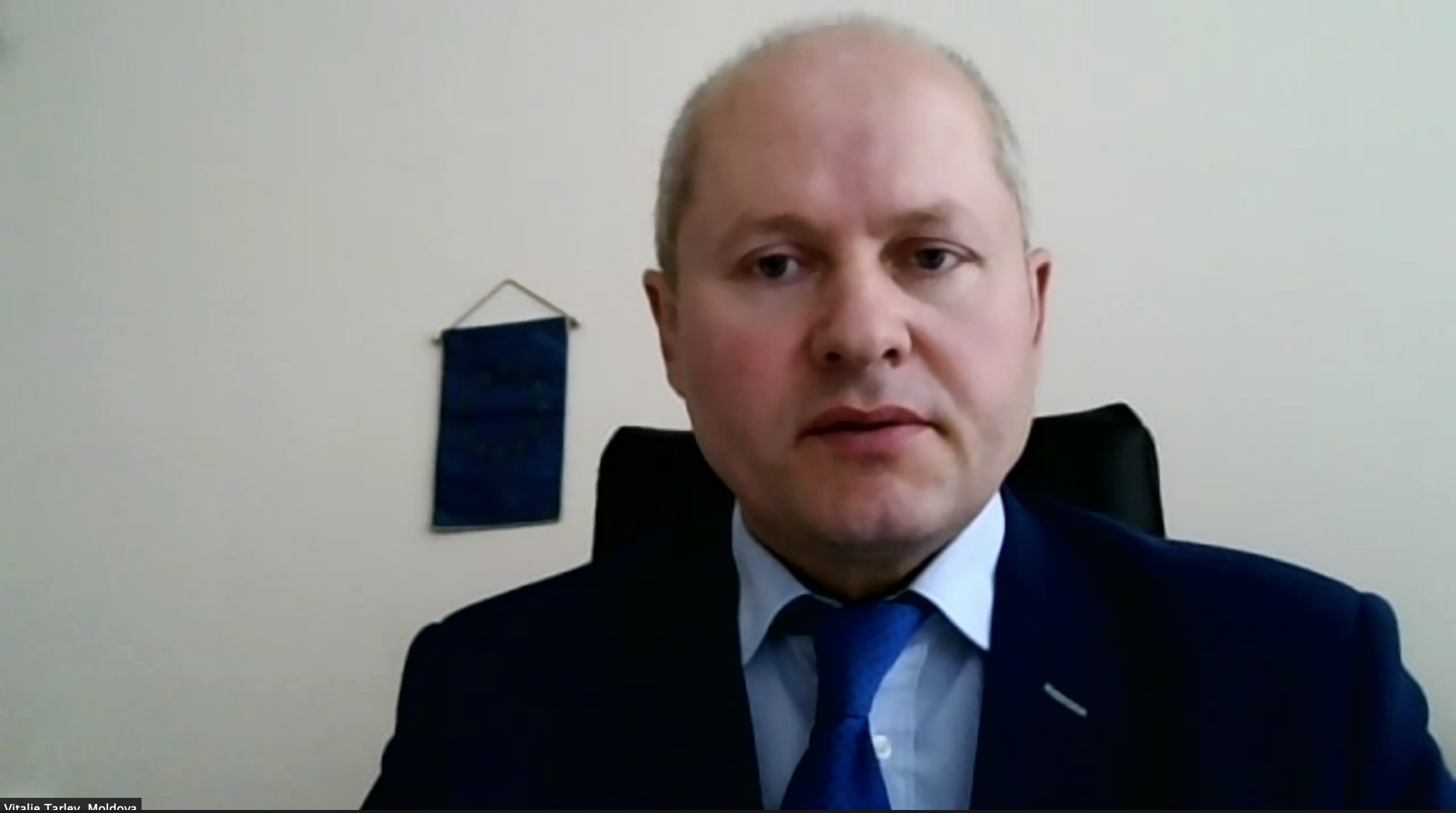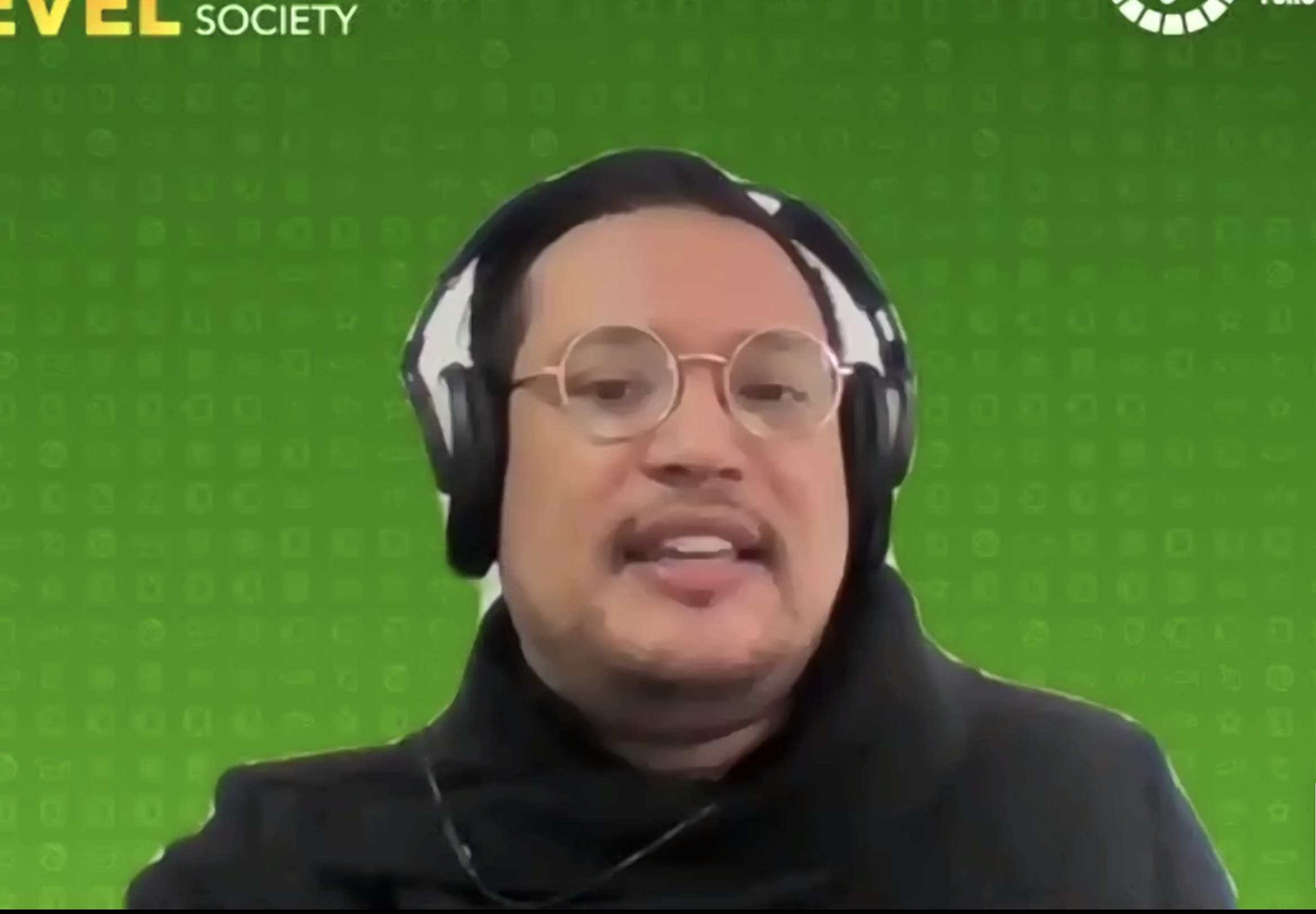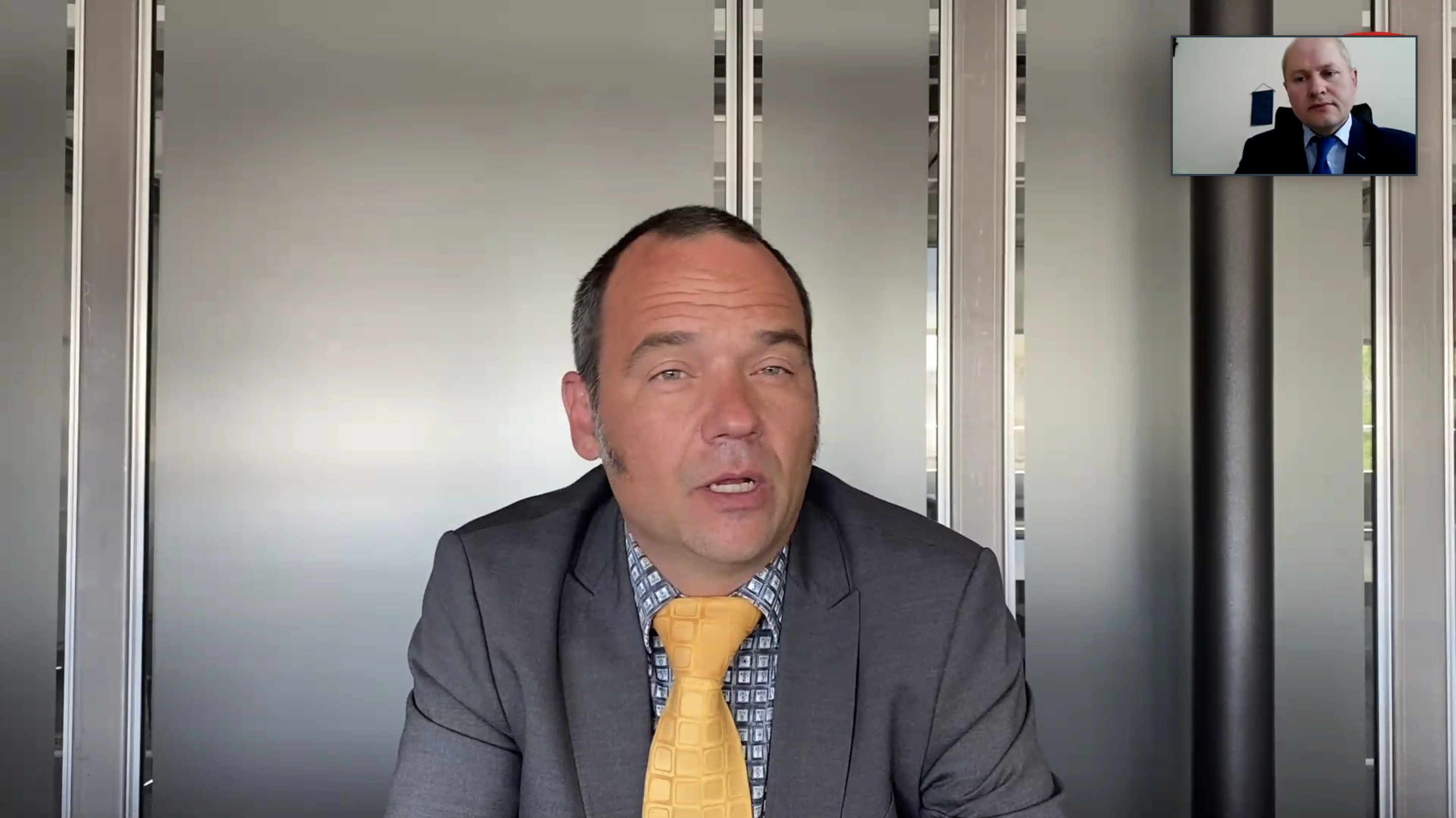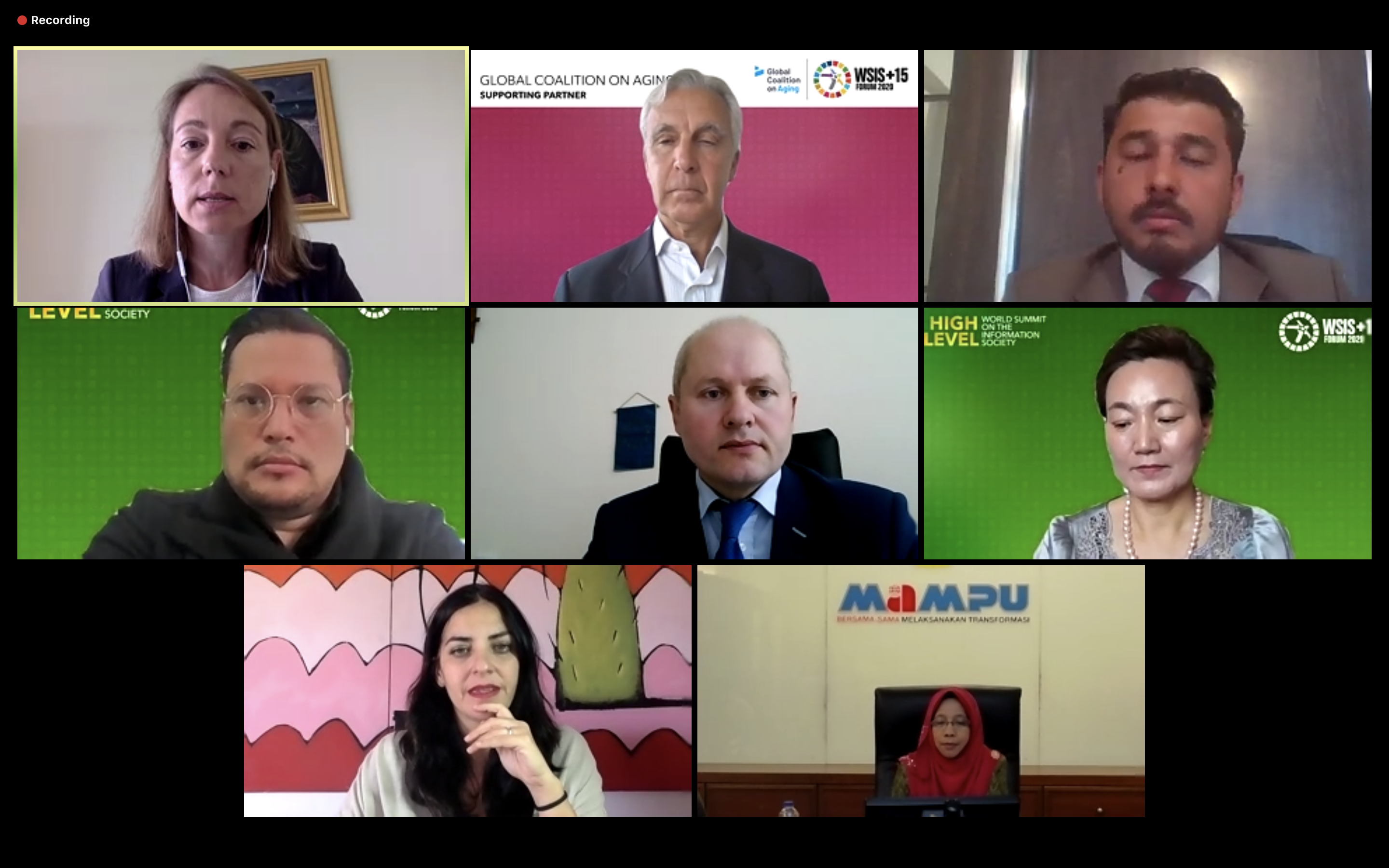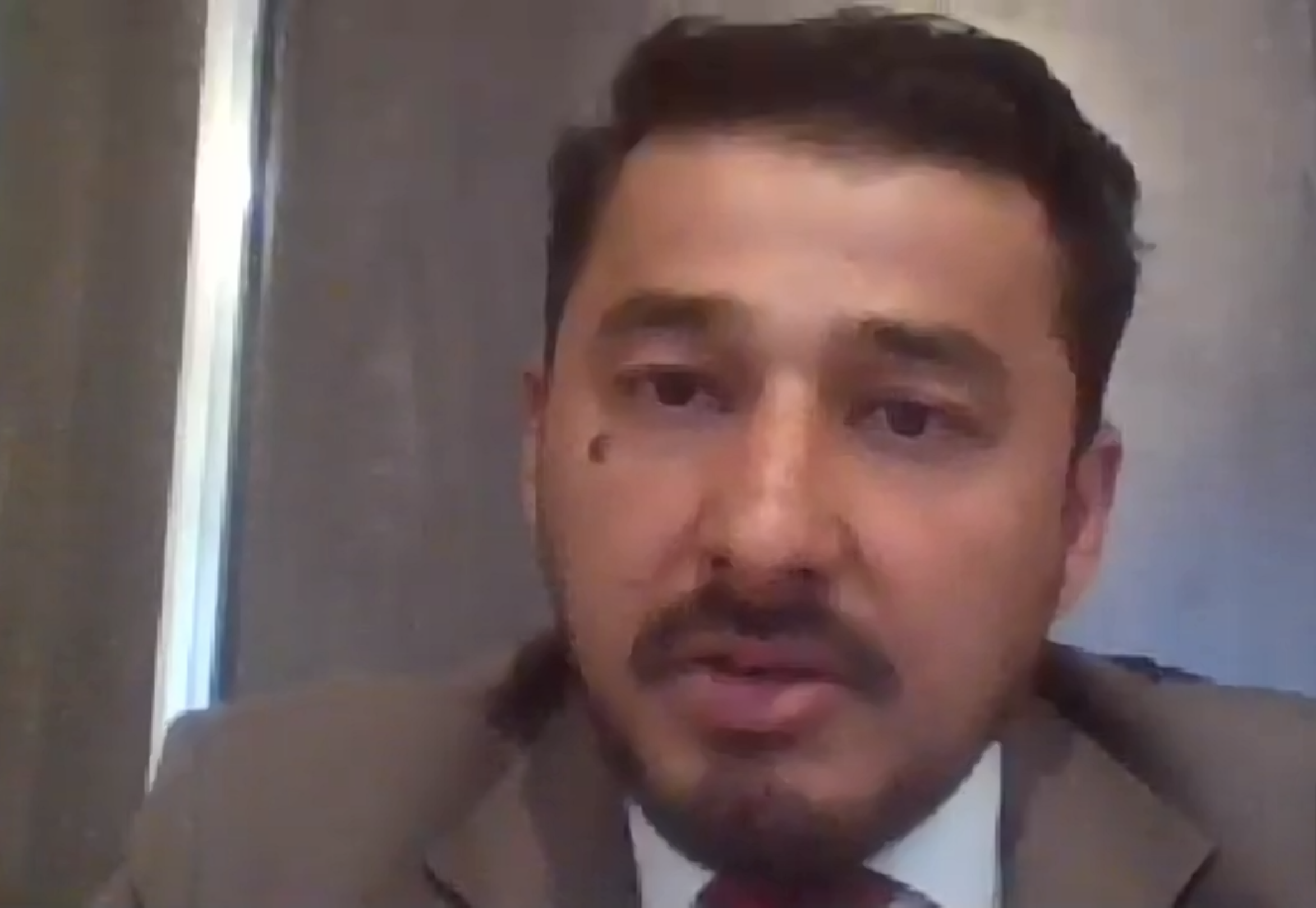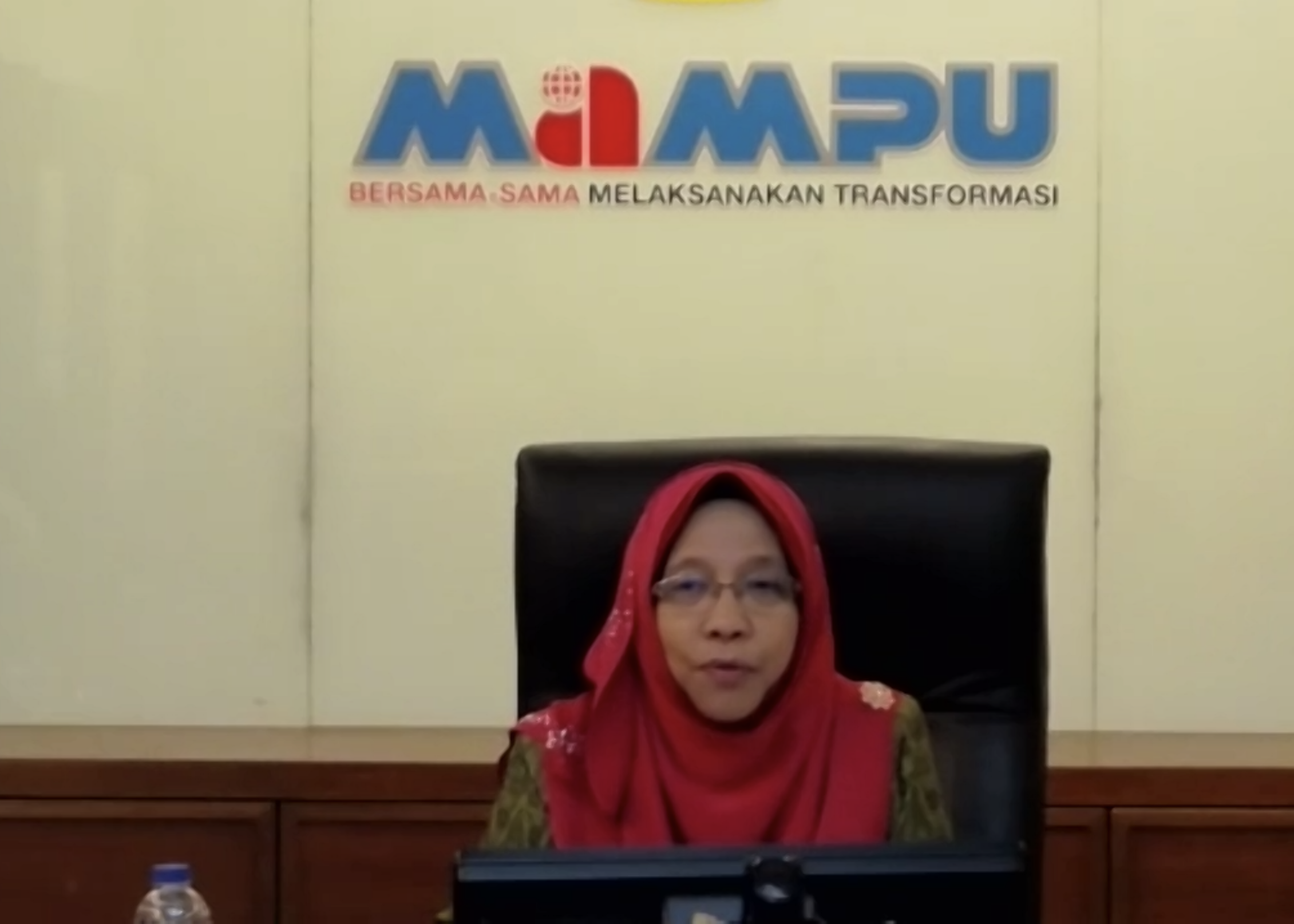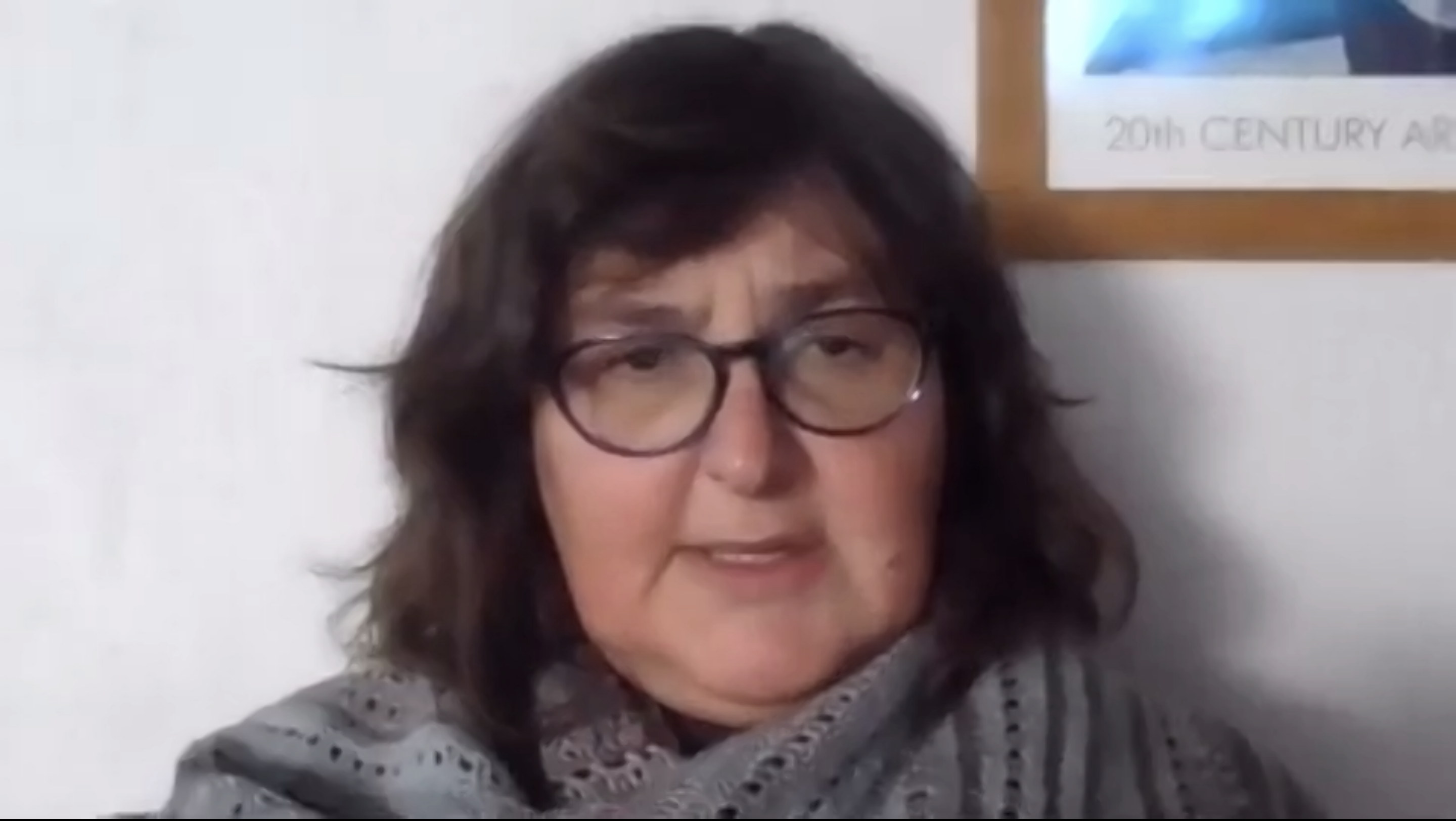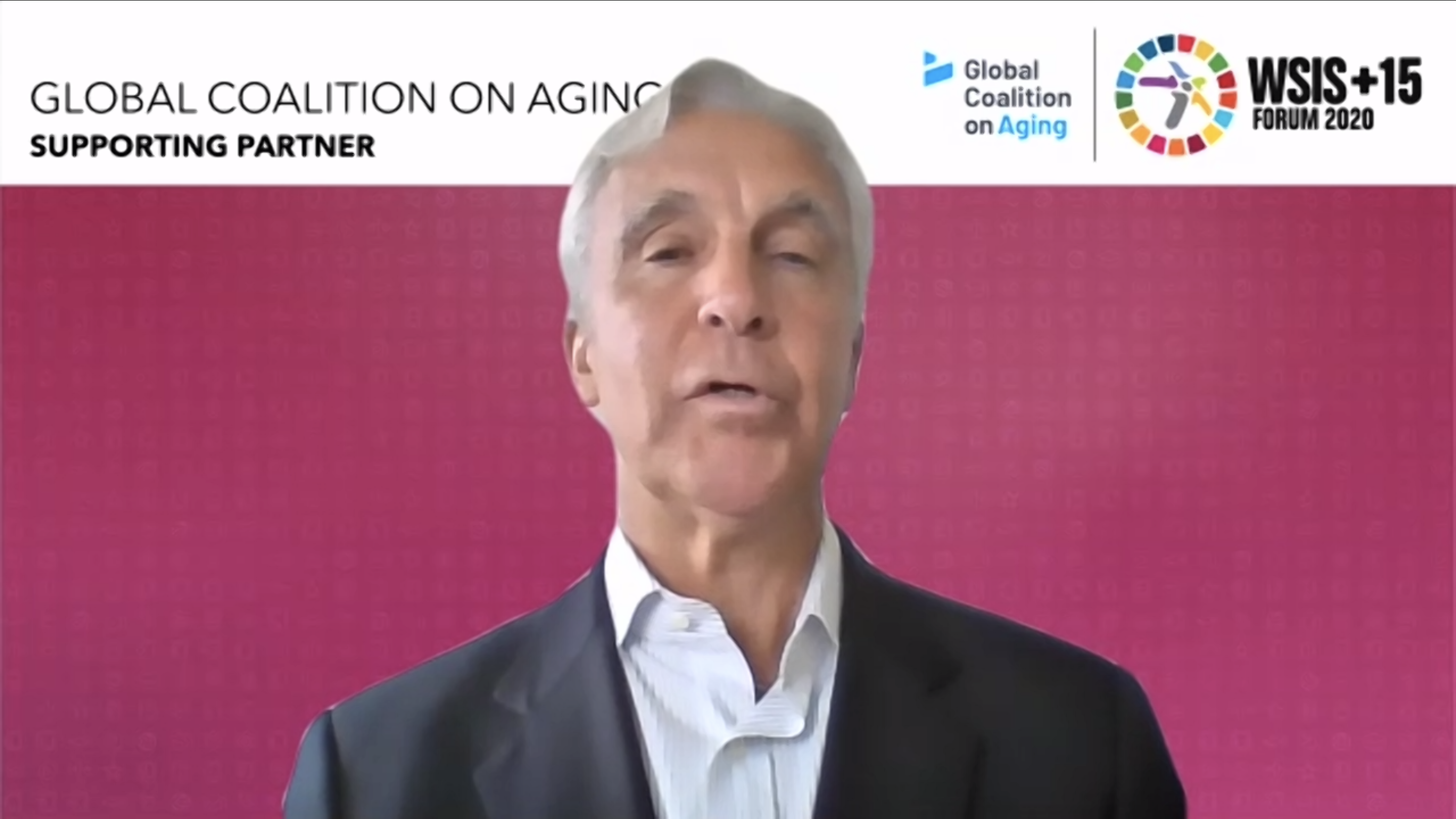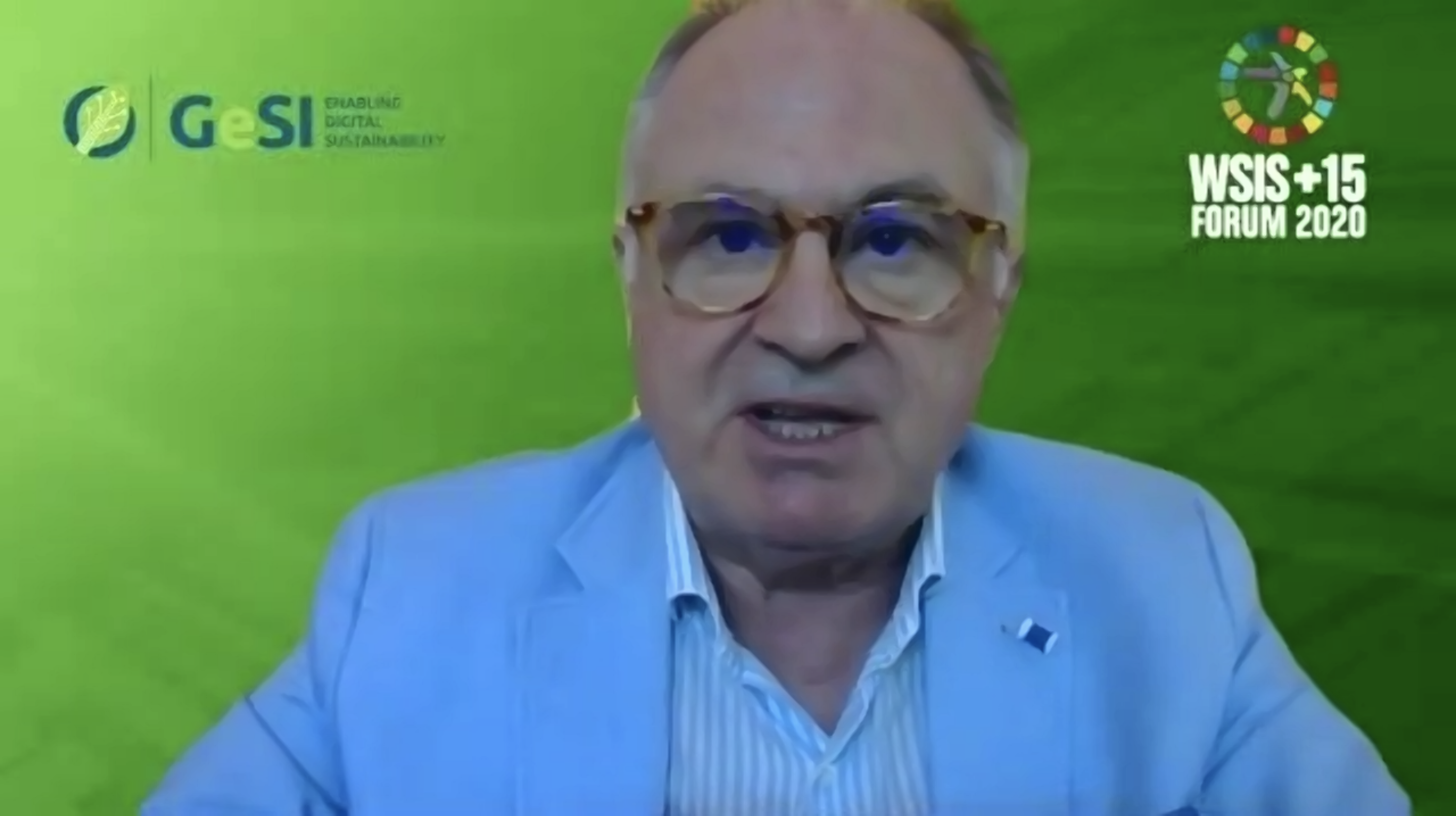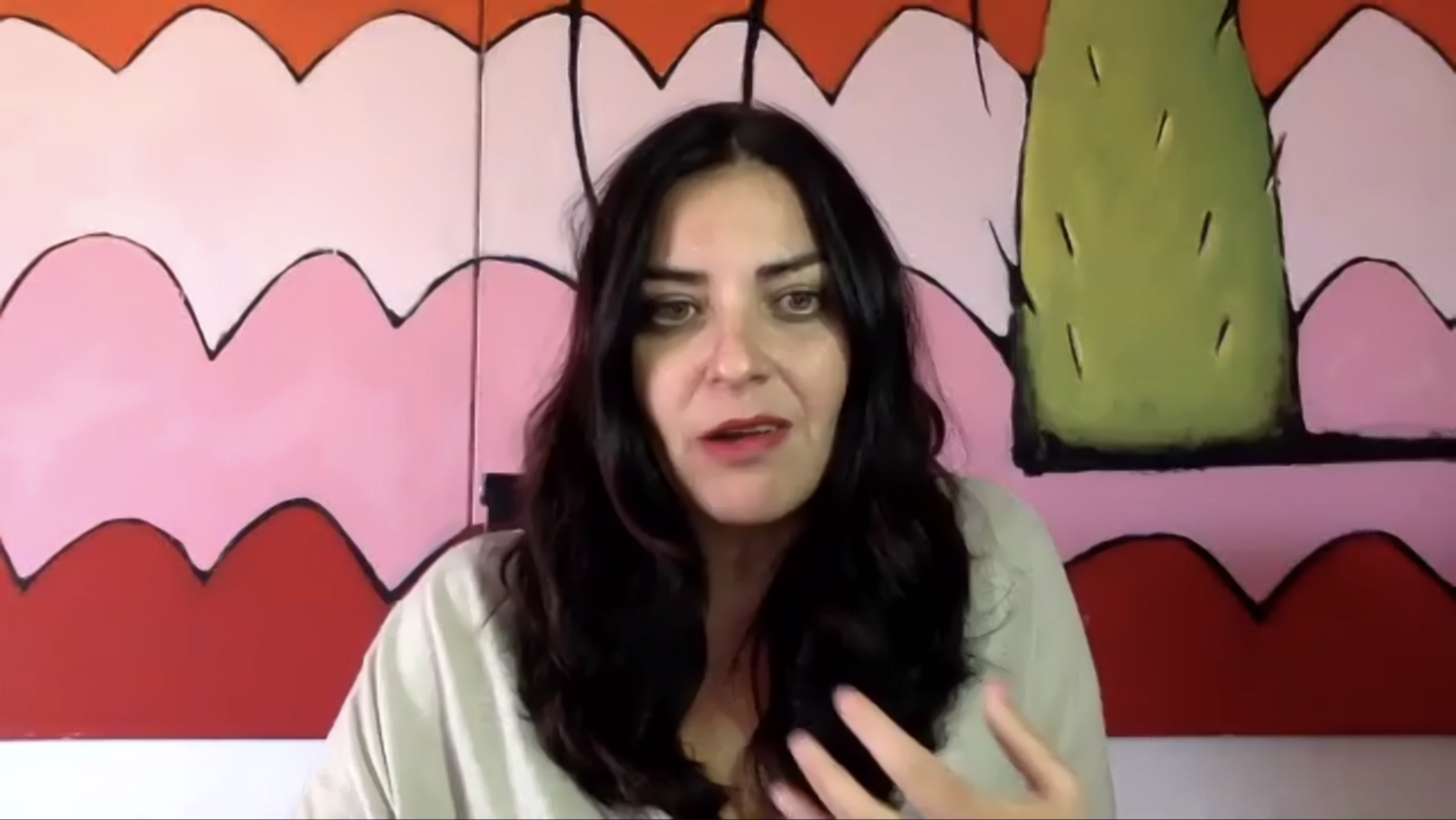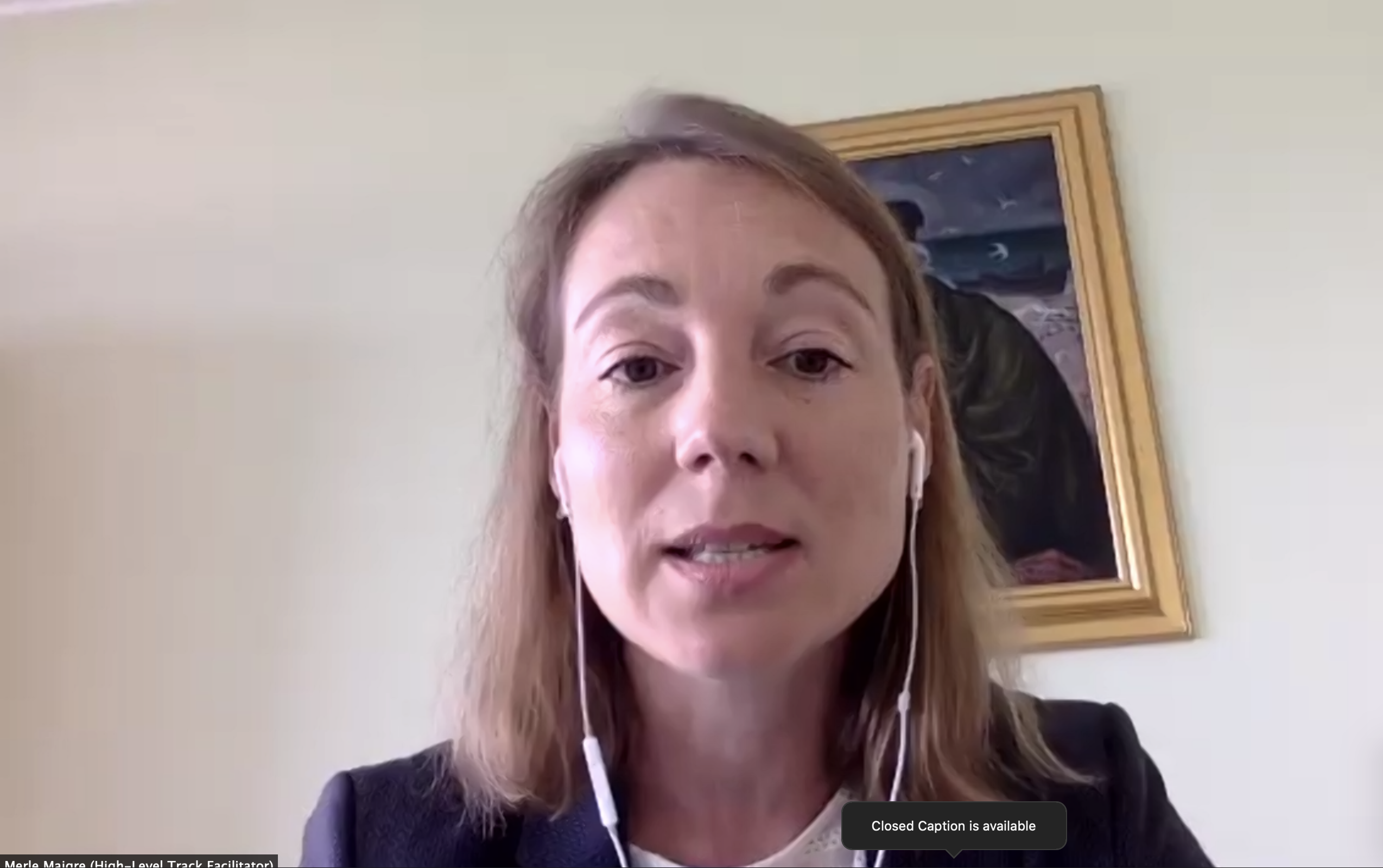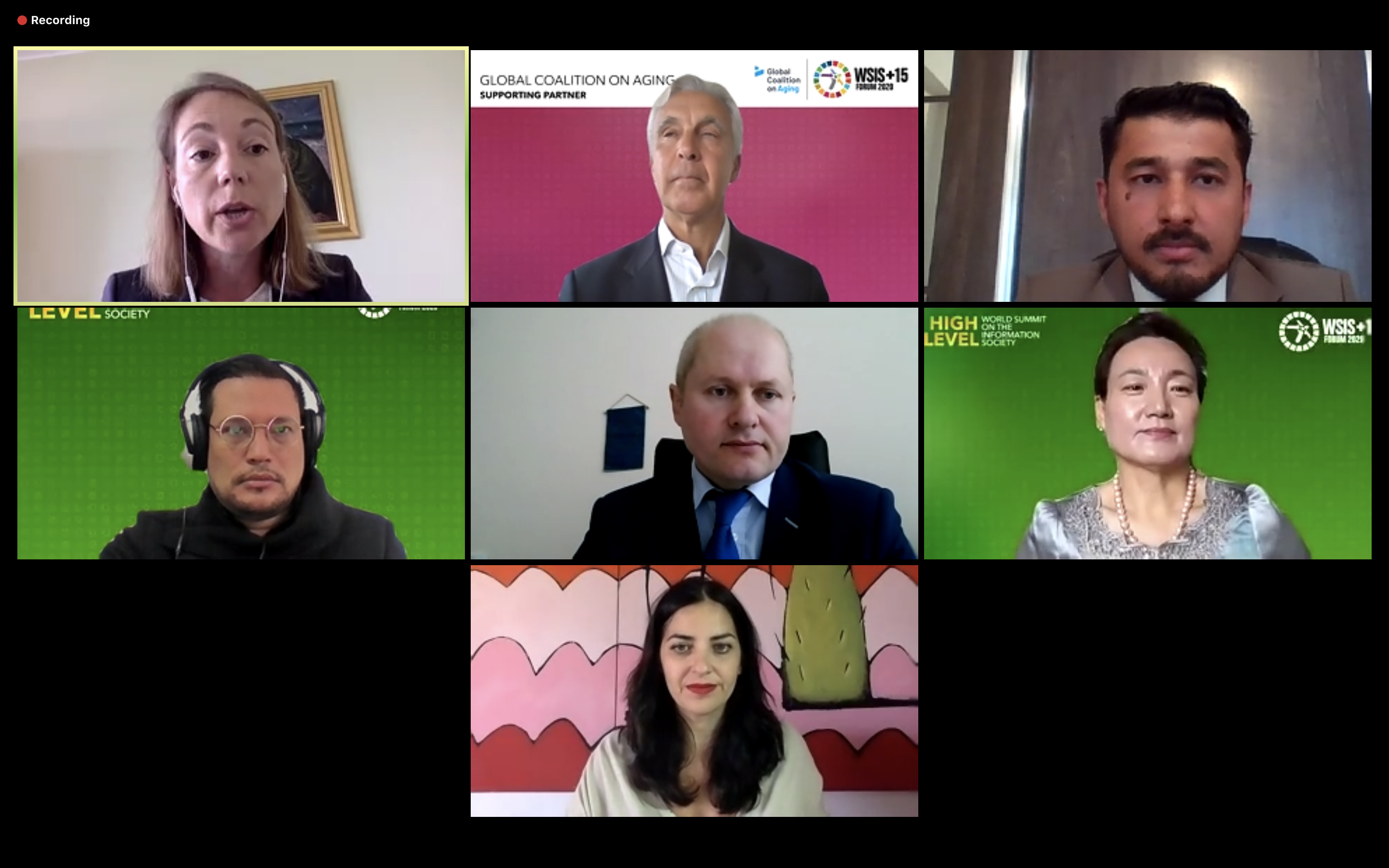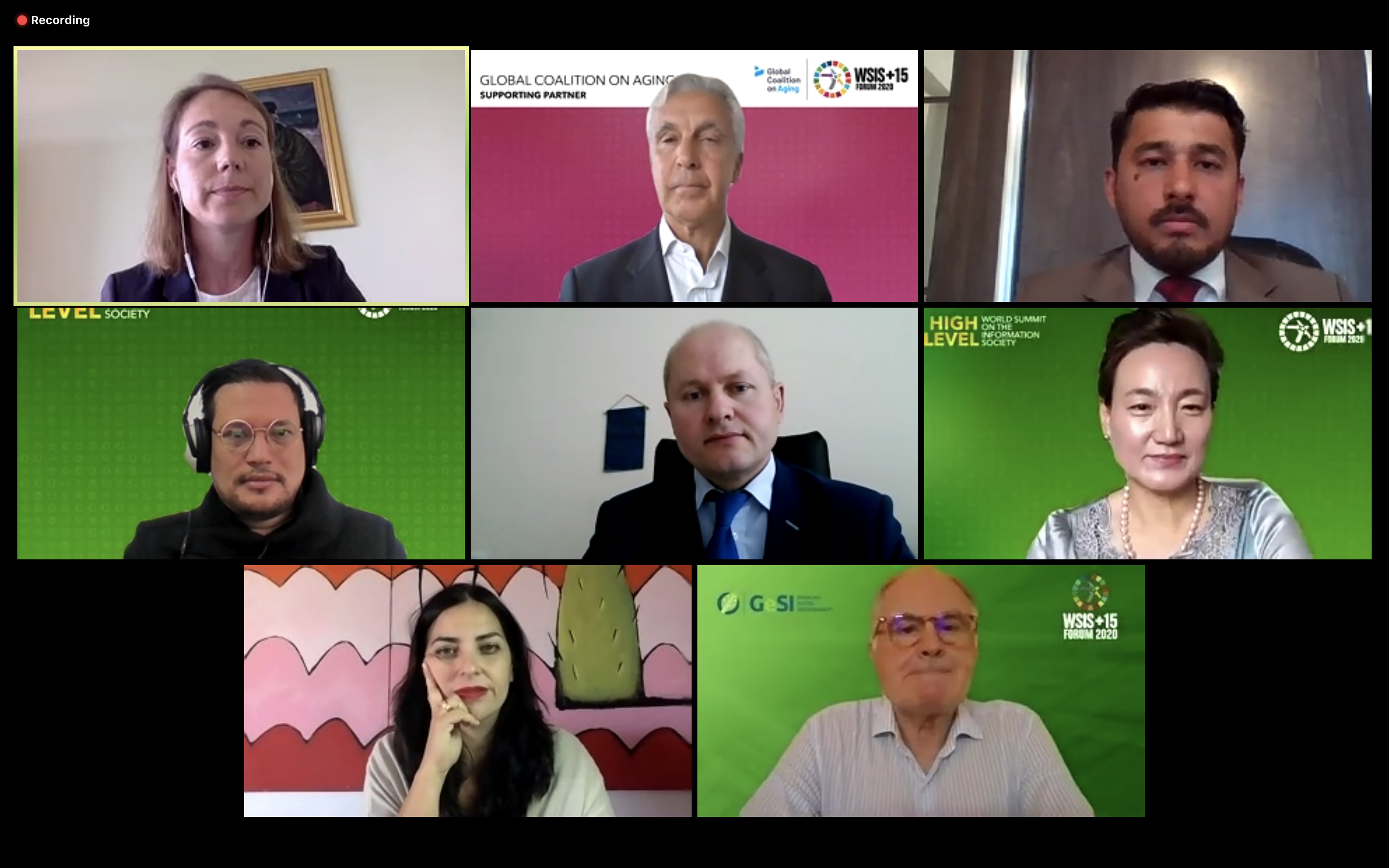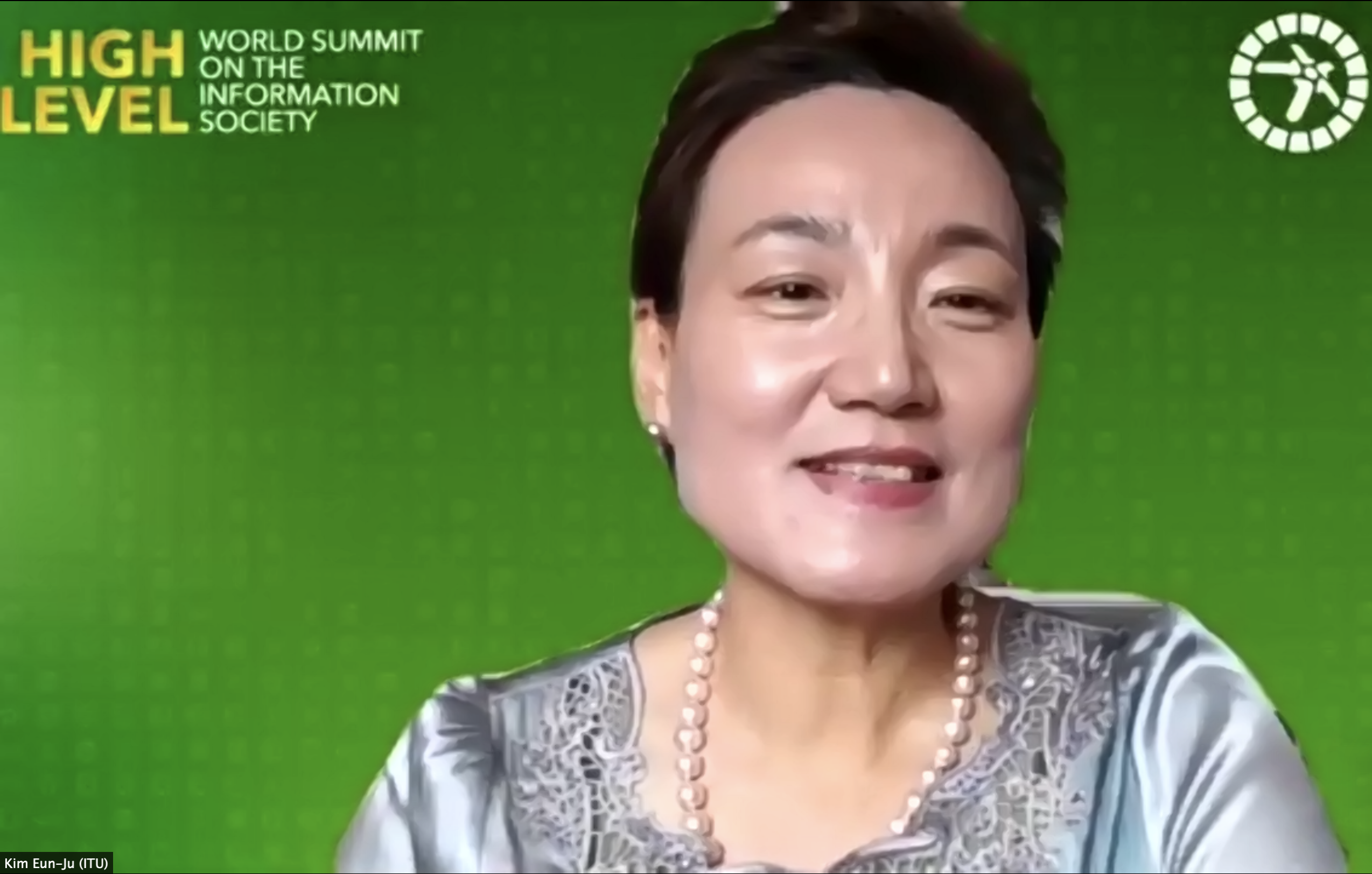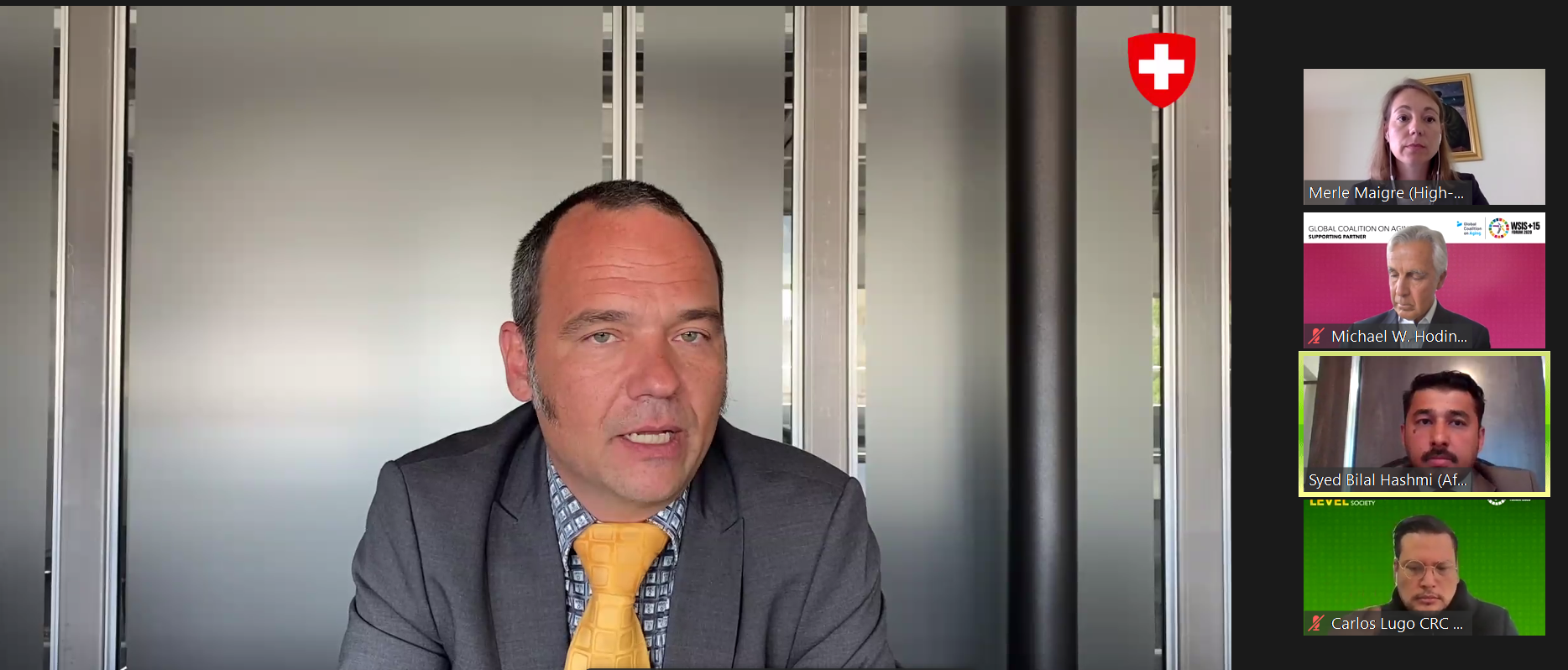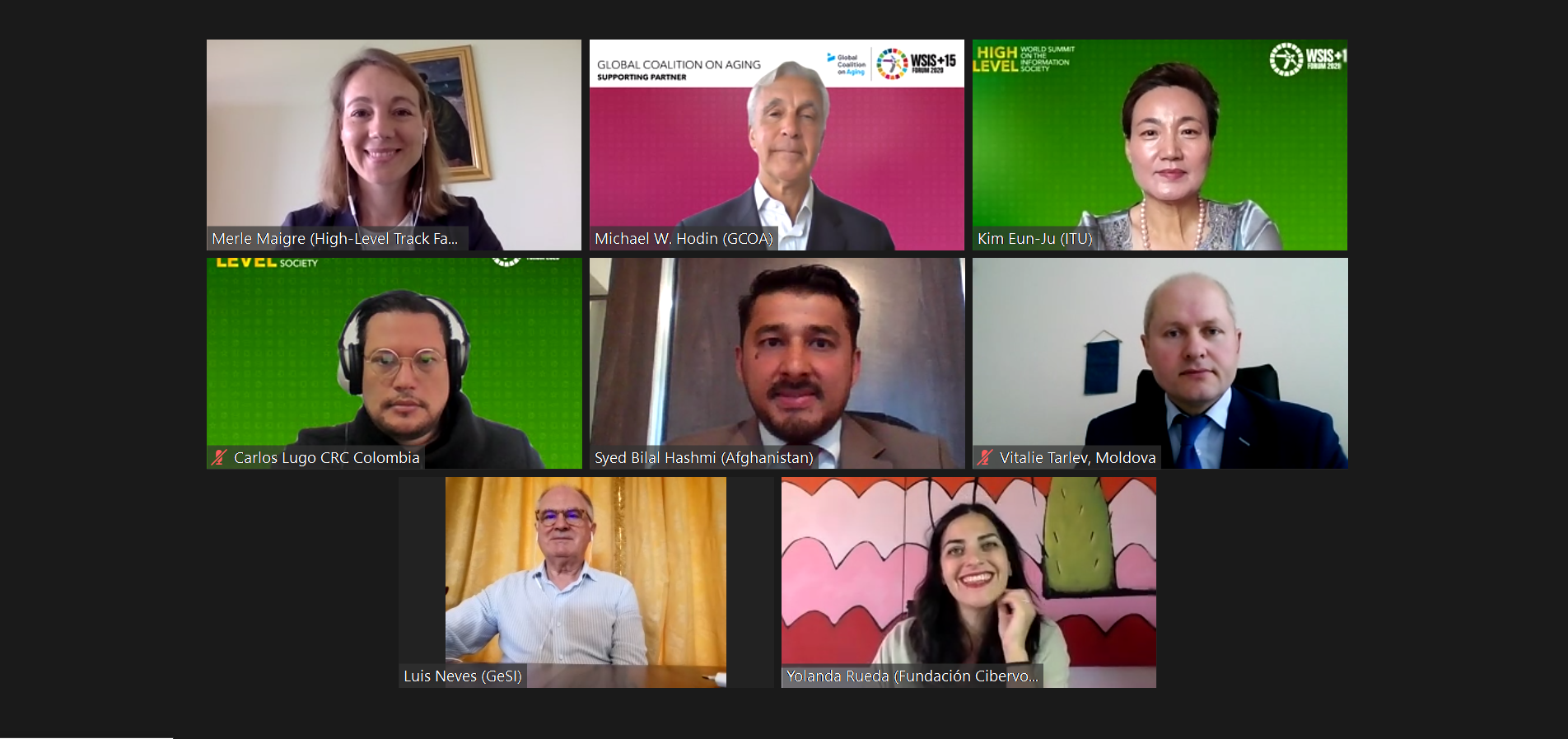High-Level Policy Session 8 : WSIS Action Lines and 2030 Agenda / Enabling Environment
WSIS
Session 179
"An enabling environment at national and international levels is essential for the Information Society. ICTs should be used as an important tool for good governance.
The rule of law, accompanied by a supportive, transparent, pro-competitive, technologically neutral and predictable policy and regulatory framework reflecting national realities, is essential for building a people-centred Information Society. Governments should intervene, as appropriate, to correct market failures, to maintain fair competition, to attract investment, to enhance the development of the ICT infrastructure and applications, to maximize economic and social benefits, and to serve national priorities.
A dynamic and enabling international environment, supportive of foreign direct investment, transfer of technology, and international cooperation, particularly in the areas of finance, debt and trade, as well as full and effective participation of developing countries in global decision-making, are vital complements to national development efforts related to ICTs. Improving global affordable connectivity would contribute significantly to the effectiveness of these development efforts.
ICTs are an important enabler of growth through efficiency gains and increased productivity, in particular by small and medium sized enterprises (SMEs). In this regard, the development of the Information Society is important for broadly-based economic growth in both developed and developing economies. ICT-supported productivity gains and applied innovations across economic sectors should be fostered. Equitable distribution of the benefits contributes to poverty eradication and social development. Policies that foster productive investment and enable firms, notably SMEs, to make the changes needed to seize the benefits from ICTs, are likely to be the most beneficial." Geneva Declaration of Principles, WSIS 2003, https://www.itu.int/net/wsis/docs/geneva/official/dop.html


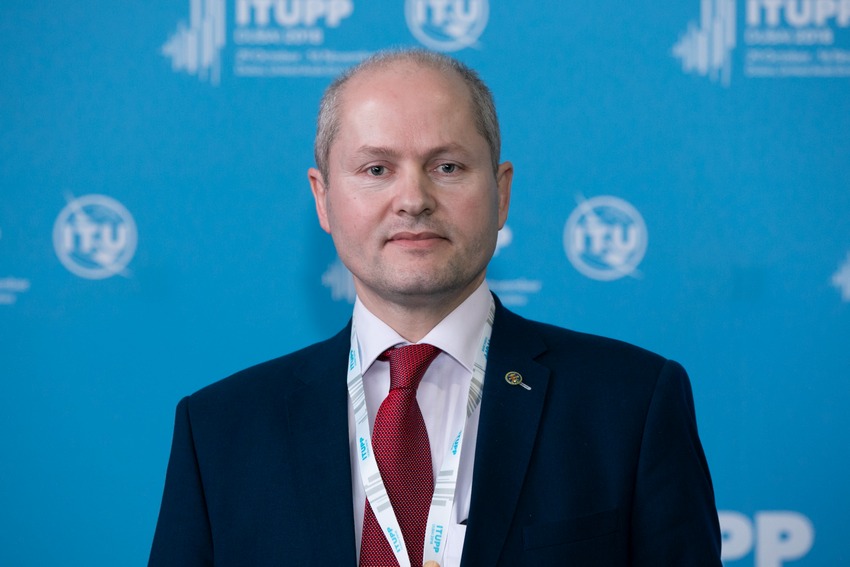
Mr. Vitalie Tarlev is acting as a State Secretary for Information Technology and Communications at the Ministry of Economy and Infrastructure of the Republic of Moldova since November 2017.
Previously he served as a Deputy Minister of Information Technology and Communications (2013–2017) and as a Director for the European Integration and International Cooperation within the same Ministry (since 2005).
Mr. V.Tarlev has been involved in numerous high profiled ICT national and international initiatives, his duties and responsibilities being focused on Information Society policy and legal framework development, as well as on the implementation of the related to this projects: eMoldova2010 Strategy; Digital Moldova 2020 Strategy; IT Industry Competitiveness Roadmap (2015-2017); IT Industry and Digital Innovation ecosystem Strategy (2018-2023); Law on IT parks (2016); IT Visa Law (2017); development of the ICT Excellence Center TEKWILL (2015); Digital Education Project for Primary Schools (2018); creation of the 112 Service for emergency communications (2018); Digital signature and Electronic Document Law (2014), Cyber Security National Program (2016), National standard - Minimal Cybersecurity Requirements (2017); Implementation of the Digital Terrestrial TV broadcasting Program (2016); Efficient Radio Frequencies Management Program (2016), etc.
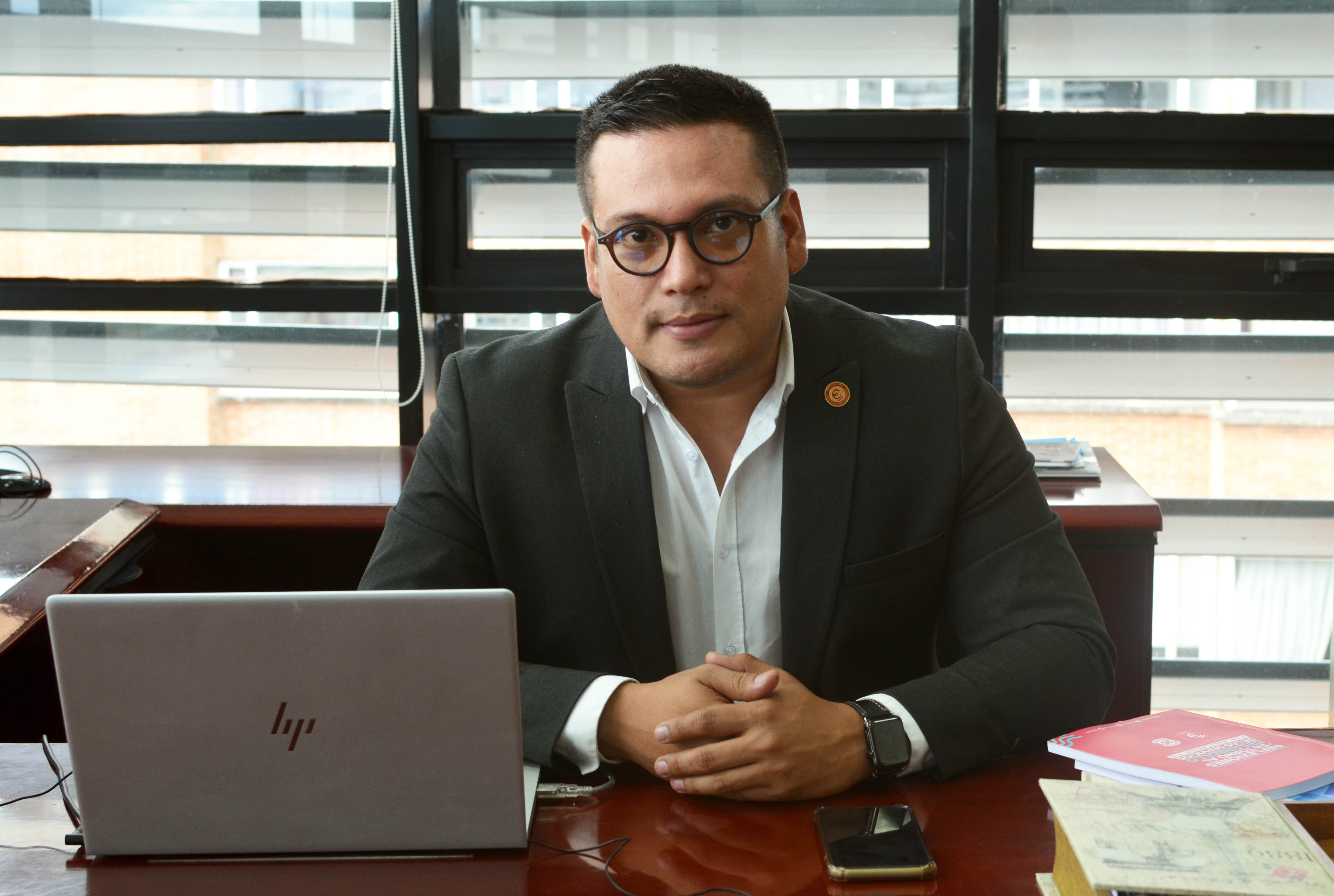.jpg)
Carlos Lugo Silva, is Doctor in social studies of science and technology, also has a Master's degree in the same subject, and is a lawyer with specialization in Telecommunications Law. He has served as Manager of Innovation and Development of SENA, Head of the Office of Educational Innovation of the Ministry of National Education, Director of ICT Appropriation of MINTIC, member of several boards of directors of the ICT and Education sector, and currently serves Commissioner of the Communications Regulation Commission, work that alternates with being a Professor and researcher in Innovation and Technology of the University of La Sabana.
He is the author of the books "la innovación educativa en Colombia" and "los técnicos de la innovación".
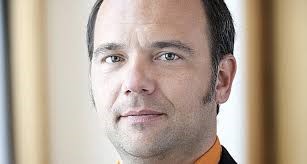
Thomas Schneider is Ambassador and Director of International Affairs at the Swiss Federal Office of Communications (OFCOM) in the Federal Department of the Environment, Transport, Energy and Communications (DETEC). He is a long-standing expert in digital governance and in the governance of the information and knowledge society and artificial intelligence. He is leading the Swiss delegation in various key international fora in these fields. He has been coordinating the Swiss activities with regard to the implementation and follow-up of the UN World Summit on the Information Society (WSIS) since 2003. He is currently chairing the Council of Europe’s Steering Committee on Media and Information Society (CDMSI) (since 2018) and he is the president of the EuroDIG Support Association (since 2012). From 2014-2017, he chaired ICANN’s Governmental Advisory Committee (GAC) and he has been responsible for organizing the 2017 UN Internet Governance Forum in Geneva, on behalf of the Swiss government. He has been participating in the meetings of the UN Secretary General’s High Level Panel on Digital Cooperation, as personal advisor of former Swiss president, Ms. Doris Leuthard (2018-2019).
Mr. Schneider is acting as head of the Swiss delegation in a number of international fora such as ITU, UNESCO, UPU, UN Internet Governance Forum and other UN bodies as well as at the OECD, the Council of Europe, etc.
From July 2018 to June 2019, he has been participating in the UN Secretary General’s High Level Panel on Digital Cooperation, as advisor of panel member and former Swiss President, Ms. Doris Leuthard, 2018-2019.
In December 2017, he was elected as the chairman of the Council of Europe's Steering Committee on Media and the Information Society (CDMSI) and thus led the CDMSI’s work on the impact of AI on media, human rights and democracy. Before that, he had been a CDMSI bureau member since 2011 and vice-chair in 2014. He was a member of the Council of Europe (CoE) expert groups on Internet intermediaries (2016-2017), on cross-border flow of Internet traffic and Internet freedom (2014-2015). He was vice-chair of the CoE’s expert group on rights of internet users (2012-2013) and chair of the CoE's expert groups on new media (2009-2011) and on human rights in the information society (2006-2009).
He is responsible for the cooperation with ITU for the AI For Good Summit 2020, on behalf of Switzerland as the host of the event. He also represents Switzerland in the OECD’s Committee on Digital Economy Policy (CDEP), which is leading the OECD’s work on AI, as well as at UNESCO’s Commission V (Information and Communication) and UNESCO’s work on AI.
He is the head of the Swiss delegation at the main conferences and meetings of the Universal Postal Union (UPU), the International Telecommunication Union (ITU), UNESCO’s Commission V and the OECD’s Committee on Digital Economy Policy (CDEP) since 2017. He has represented Switzerland in the ITU Council Working Group on WSIS (since 2005) and co-chaired the ITU Council Working Group on Stakeholder Participation in ITU's activities related to WSIS (2006-2010).
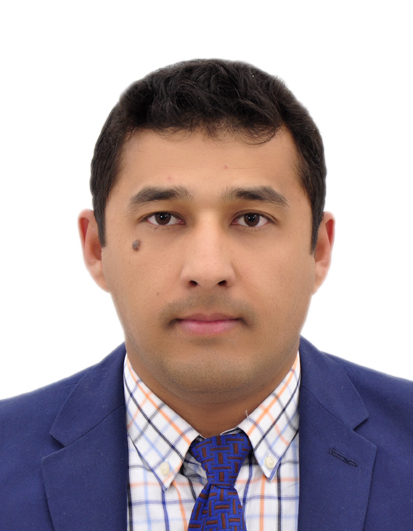
He works for ATRA as Vice Chairman (Admin and Finance), He worked at Certified Professional Accountants Afghanistan, Ministry of Finance Afghanistan the only regulatory body in Accounting profession in the capacity of Head of CPA Afghanistan.
Mr Hashmi has more than a decade experience in External Audit, Banking Institutions, Financial, Accounting, Consultancy, Management, Teaching ACCA (Kabul and Malaysia) Administration both in Afghanistan and Malaysia. He is currently a part time visiting lecturer at Kabul University, Faculty of Economics, Department of Accounting and ACCA instructor at American University of Afghanistan .

Hanissull Jalis Binti Md Yusof is the Director of Application Development Division of the Malaysian Administrative Modernisation and Management Planning Unit (MAMPU) under the Prime Minister’s Department, a post she held since July 2020. Prior to this, she was the Deputy Director of the Administrative, Open Source and Technical Section of the Application Development Division of MAMPU.
With a vast knowledge and experience in ICT which encompasses systems development, systems operation, and ICT project management, she holds a prominent role in the planning and managing of the development of system applications used by Public Sector Agencies. The system applications include Digital Document Management System (DDMS), Meeting Management System, Performance Management System, ICT Project Management System and others.
Hanissull Jalis has 31 years of working experience in the Malaysian Public Sector serving various Government agencies which include the Ministry of Education, National Institute of Public Administration (INTAN), and National Registry Department.
She obtained her Masters of Science (Engineering) in Operational Research from University of Birmingham, United Kingdom in 1996.
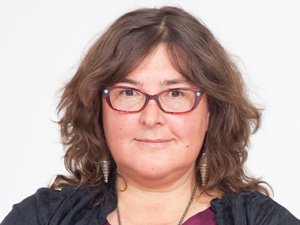
Ms. Esterhuysen currently serves as a Commissioner on the Global Commission on the Stability of Cyberspace. She was the executive director of the Association for Progressive Communications (APC) - the largest ICT-focused civil society network in the world - from 2000 to 2016. She continues to work with APC as a consultant and convenes the African School on Internet Governance (AfriSIG) a joint initiative of APC, the African Union Commission and Research ICT Africa. Ms. Esterhuysen has served on the African Technical Advisory Committee of the United Nations Economic Commission for Africa's African Information Society Initiative (1996-1999), the United Nations ICT Task Force (2002-2005), the World Summit on the Information Society (WSIS) Working Group on Financing Mechanisms (2003-2005), the Commission on Science and Technology for Development Working Group on Internet Governance Forum (IGF) Improvements
(2011-2012) and on Enhanced Cooperation (2017-2018), the Global Commission on Internet Governance and the Multistakeholder Advisory Group (MAG) of the IGF (2012-2014). She was inducted into the Internet Hall of Fame as a Global Connecter in 2013.
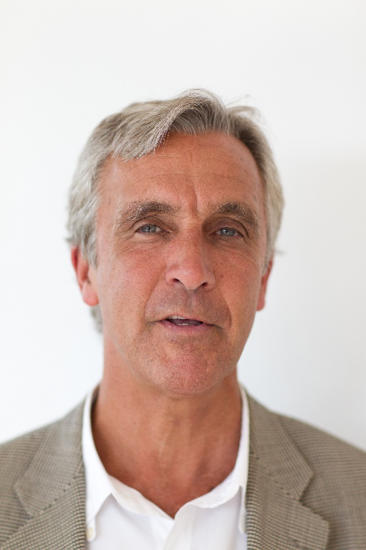
Michael W. Hodin, Ph.D. is CEO of the Global Coalition on Aging, Managing Partner at High Lantern Group, and a Fellow at Oxford University’s Harris Manchester College. He is also a blogger on Medium.
From 1976-80, Mike was Legislative Assistant to Senator Daniel Patrick Moynihan. During this period he was also a Visiting Scholar at Brookings Institution, on U.S. Foreign Economic Policy. He was a senior executive at Pfizer, Inc. for 30 years, where he created and then led its International Public Affairs and Public Policy operations and served on Management Boards for a number of its businesses.
Mike is a Member of the Council on Foreign Relations, and from 2010-2013, was Adjunct Senior Fellow with a focus on population aging. In 2013, Mike was invited by then-Committee Chairman Bill Nelson (D-FL) to lead a Members’ Roundtable with the U.S. Senate Special Committee on Aging. Mike was also the recipient of the 2012 Fred D. Thompson Award from the American Federation for Aging Research. He sits on the Boards of the Foreign Policy Association, Business Council for International Understanding, NYC Blood Center, American Skin Association, American Federation for Aging Research and Emigrant Savings Bank, where he is Chairman of its compensation committee. Mike was a member of the World Economic Forum’s Global Agenda Council on Ageing. And he sits on the Advisory Board for the Milken Institute Center for the Future of Aging.
Mike holds a BA, cum laude, Cornell University, M.Sc.in International Relations from The London School of Economics and Political Science, and M.Phil and Ph.D. in Political Science from Columbia University.
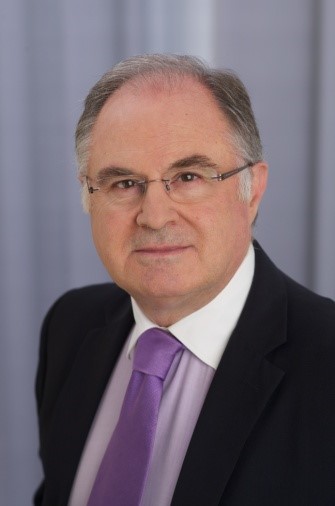
Luis Neves is CEO of the Global Enabling Sustainability Initiative (GeSI) since 2017. Prior to that, from 2008-2017, Luis held the position of GeSI Chairman. Under Luis' leadership, GeSI has become a globally recognized “thought industry leader” organisation in the field of ICT- sustainability with strong focus on the enabling role and positive contribution of digital technologies to climate protection.
Prior to GeSI, Luis worked at Deutsche Telekom for over 15 years holding positions such as Head of Sustainable Development and Environment, VP of Corporate Responsibility and Chief Sustainability and Climate Protection Officer. Luis has also held positions and played relevant roles at European and international levels in organisations, such as the UN Global Compact Lead Group, Econsense -the German Sustainability Association, World Resources Forum Association and UNFCCC Momentum for Change Initiative.
Luis was born in Portugal and obtained a degree in History from the University of Lisbon.
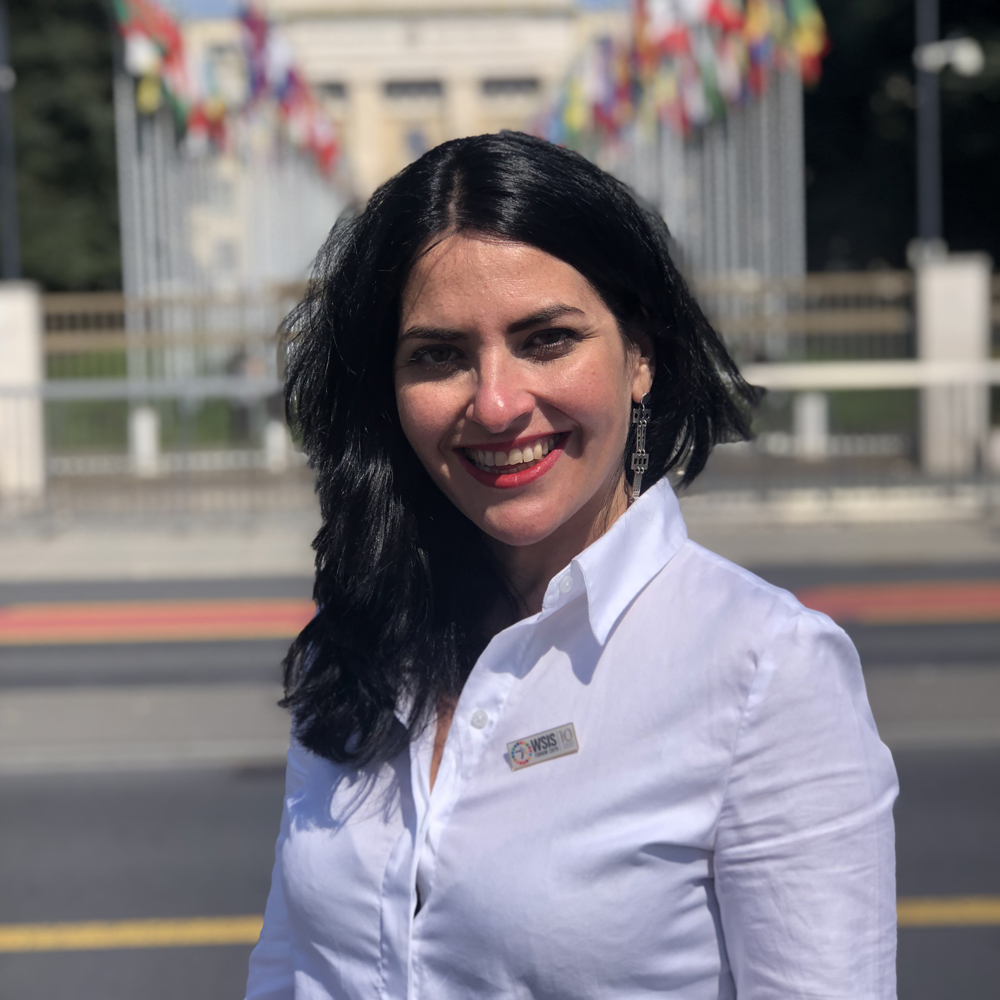
Social entrepreneur. Founder and current President of Fundación Cibervoluntarios, a non-profit organization that promotes the use and knowledge of new technologies as a means to alleviate social gaps, promote social innovation and generate citizen empowerment, recognized last November by Financial Times as one of 100 entities that are leading Europe’s growth “Europe’s 100 digital champions”
Previously, Yolanda co-founded the Campus Party 1997 – 2005, and the ICT consulting company Futura Networks. After selling her shares participation of both entities, she focuses herself to Cibervoluntarios. Previously she worked at an institutional level for Red.es and the Youth Institute of Spain
Highlights: in 2018 Yolanda was named as one of the 100 of COTEC, as specialist in the Fourth Sector. Yolanda was selected as one of the Top 100 women leaders in Spain, three times in 2016, 2012 and 2011, she has become one of the women in their honour hall of fame. She was also awarded in 2011 by Mía Magazine with the Mujeres Reales award for innovation. In 2013 was named one of the “Las Influyentes” for her leadership 2.0 by Madrid Woman Week and the Association Procom. In 2012, she was awarded a scholarship by the International Leadership Visitors Program of the Federal Government of the United States.
Yolanda also founded in 2006 Empodera.org, a platform of collective intelligence aimed to foster Civil Society engagement to the Agenda 2030 and the achievement of the SDGs. Empodera.org is a space of experimentation to propose real solutions and actions to specific problems using open and inclusive technologies. The platform works as a collaborative space, open to ideas and open to citizens. The platform counts on the support of the United Nations through UNITAR.
She is a Journalist and has got a masters’ degree in Management and Administration of foundations and other non-profit entities, she also specialized in Marketing. Yolanda has also written several publications, highlighting her participation books such as Como la tecnología cambió mi vida (How technology changed my life) or Los auténticos nativos digitales: ¿estamos preparados para la Generación Z?. She is the content curator of an annual publication about Digital transformation, Social Innovation, Tech for Good and citizen empowerment with seven editions so far, the last two: Civic Technology: the ecosystem of social innovation and Empodera por los ODS (Empodera for the SDGs)
-
 C1. The role of governments and all stakeholders in the promotion of ICTs for development
C1. The role of governments and all stakeholders in the promotion of ICTs for development
-
 C2. Information and communication infrastructure
C2. Information and communication infrastructure
-
 C3. Access to information and knowledge
C3. Access to information and knowledge
-
 C4. Capacity building
C4. Capacity building
-
 C5. Building confidence and security in use of ICTs
C5. Building confidence and security in use of ICTs
-
 C6. Enabling environment
C6. Enabling environment
-
 C7. ICT applications: benefits in all aspects of life — E-government
C7. ICT applications: benefits in all aspects of life — E-government
-
 C7. ICT applications: benefits in all aspects of life — E-business
C7. ICT applications: benefits in all aspects of life — E-business
-
 C7. ICT applications: benefits in all aspects of life — E-learning
C7. ICT applications: benefits in all aspects of life — E-learning
-
 C7. ICT applications: benefits in all aspects of life — E-health
C7. ICT applications: benefits in all aspects of life — E-health
-
 C7. ICT applications: benefits in all aspects of life — E-employment
C7. ICT applications: benefits in all aspects of life — E-employment
-
 C7. ICT applications: benefits in all aspects of life — E-environment
C7. ICT applications: benefits in all aspects of life — E-environment
-
 C7. ICT applications: benefits in all aspects of life — E-agriculture
C7. ICT applications: benefits in all aspects of life — E-agriculture
-
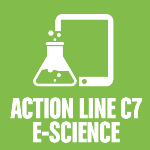 C7. ICT applications: benefits in all aspects of life — E-science
C7. ICT applications: benefits in all aspects of life — E-science
-
 C8. Cultural diversity and identity, linguistic diversity and local content
C8. Cultural diversity and identity, linguistic diversity and local content
-
 C9. Media
C9. Media
-
 C10. Ethical dimensions of the Information Society
C10. Ethical dimensions of the Information Society
-
 C11. International and regional cooperation
C11. International and regional cooperation
-
 Goal 1: End poverty in all its forms everywhere
Goal 1: End poverty in all its forms everywhere
-
 Goal 2: End hunger, achieve food security and improved nutrition and promote sustainable agriculture
Goal 2: End hunger, achieve food security and improved nutrition and promote sustainable agriculture
-
 Goal 3: Ensure healthy lives and promote well-being for all
Goal 3: Ensure healthy lives and promote well-being for all
-
 Goal 4: Ensure inclusive and equitable quality education and promote lifelong learning opportunities for all
Goal 4: Ensure inclusive and equitable quality education and promote lifelong learning opportunities for all
-
 Goal 5: Achieve gender equality and empower all women and girls
Goal 5: Achieve gender equality and empower all women and girls
-
 Goal 6: Ensure access to water and sanitation for all
Goal 6: Ensure access to water and sanitation for all
-
 Goal 7: Ensure access to affordable, reliable, sustainable and modern energy for all
Goal 7: Ensure access to affordable, reliable, sustainable and modern energy for all
-
 Goal 8: Promote inclusive and sustainable economic growth, employment and decent work for all
Goal 8: Promote inclusive and sustainable economic growth, employment and decent work for all
-
 Goal 9: Build resilient infrastructure, promote sustainable industrialization and foster innovation
Goal 9: Build resilient infrastructure, promote sustainable industrialization and foster innovation
-
 Goal 10: Reduce inequality within and among countries
Goal 10: Reduce inequality within and among countries
-
 Goal 11: Make cities inclusive, safe, resilient and sustainable
Goal 11: Make cities inclusive, safe, resilient and sustainable
-
 Goal 12: Ensure sustainable consumption and production patterns
Goal 12: Ensure sustainable consumption and production patterns
-
 Goal 13: Take urgent action to combat climate change and its impacts
Goal 13: Take urgent action to combat climate change and its impacts
-
 Goal 14: Conserve and sustainably use the oceans, seas and marine resources
Goal 14: Conserve and sustainably use the oceans, seas and marine resources
-
 Goal 15: Sustainably manage forests, combat desertification, halt and reverse land degradation, halt biodiversity loss
Goal 15: Sustainably manage forests, combat desertification, halt and reverse land degradation, halt biodiversity loss
-
 Goal 16: Promote just, peaceful and inclusive societies
Goal 16: Promote just, peaceful and inclusive societies
-
 Goal 17: Revitalize the global partnership for sustainable development
Goal 17: Revitalize the global partnership for sustainable development
